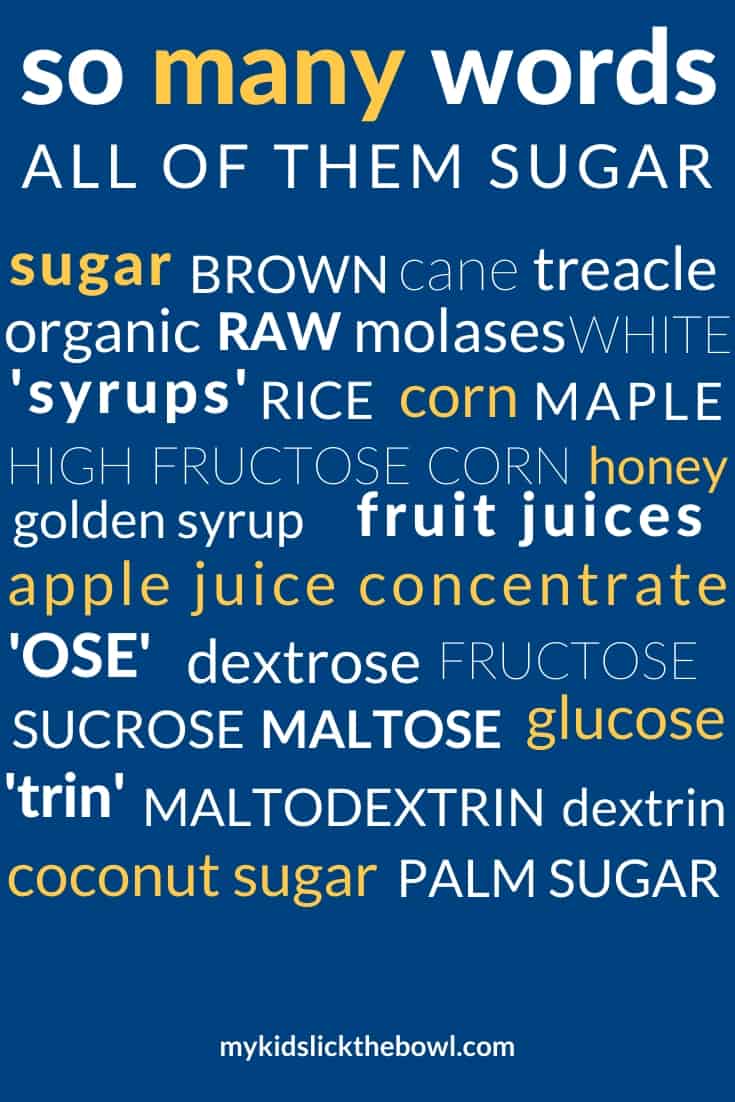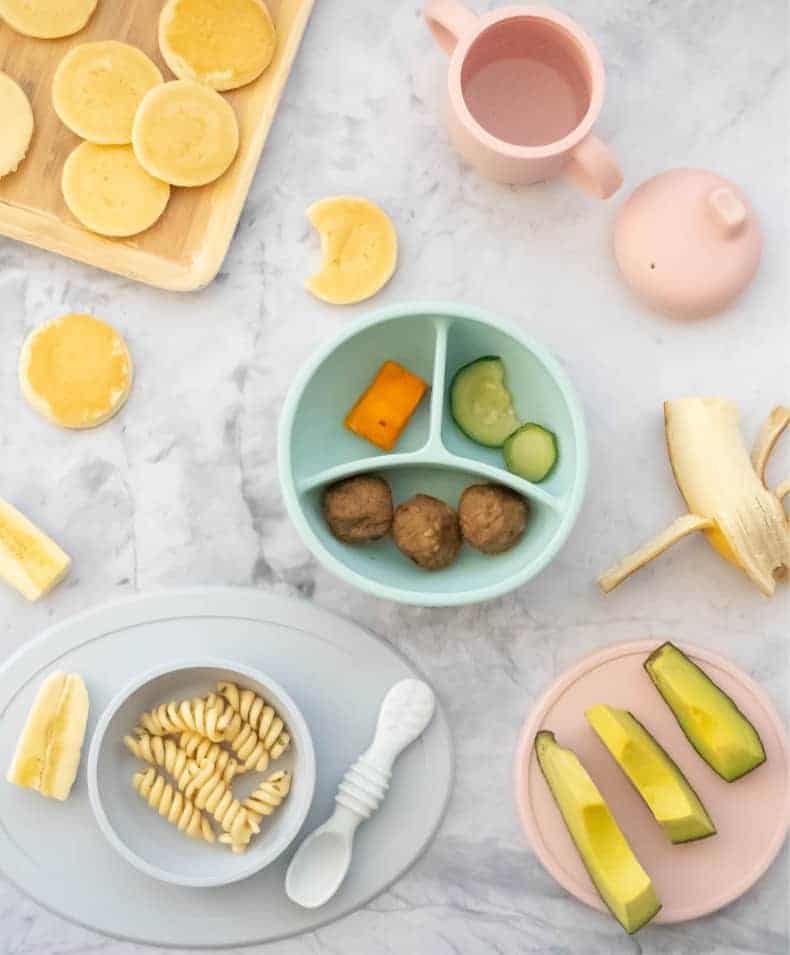Sugar, Ahh honey honey: Sugars in our children's diet
World Health Organisation Sugar Recommendations
The World Health Organisation has recently come out with a statement on sugar in the diet. Essentially we have been eating too much. No real surprise there.
Sugar is everywhere these days. It flaunts itself openly in many forms, like soft drinks, cakes, biscuits and sweets. We know it's there because these are sweet tasting foods. But the sweet mistress also hides in other processed foods that one may wrongly assume are sugar free because of their savoury nature. Items like pasta sauces, some crackers, many sauce bases and a lot of other processed foods.
In the quest to follow low fat/fat free diets we unwittingly increased our sugar consumption. Food manufacturers and marketers jumped on the low fat band wagon. New and reinvigorated foods came onto the market waving their 97% fat free flags and suckered us in. You see, in order to make the foods taste good when they removed the fat, food companies had to replace it with something, and quite often that something was sugar.
One of the latest dietary trends is to go sugar free. Whilst it sounds very admirable, my concern is that this could lead us down the same path as the 'no fat' predicament we have ended up in. Where we take what should be a healthy diet message to such an extreme, we end up with a worse dietary pattern than what we had in the first place.
Let's start with a quick biochemistry lesson
(written by a mum with a background in human nutrition, not a biochemist)
Sugars are essentially very simple carbohydrates that taste sweet. Our body uses three main types of simple sugar molecules as sources of energy. Glucose, Fructose, and Galactose (there are some others but these are the main ones). Our remarkable digestive system takes the more complicated sugars and carbohydrates we eat in our diet and breaks them down in to these three usable forms. Once they are in these forms they can be absorbed into the blood stream and provide the energy our body needs to do its daily business.
Most of the 'sugar' that we consume in our diet are two of these simple sugar molecules joined together. For example table sugar (Sucrose) is essentially a glucose and fructose holding hands. So all our body's need to do is break that join, and then it has a pretty instant energy source.
White cane sugar currently seems to be taking the biggest beating in the media and googlesphere. Recently I have been seeing a plethora of recipes and processed foods containing seemingly 'healthier' forms of sugars. Ingredients like coconut sugar, organic sugar, organic honey. They do sound like they may well be a lot better for us than white cane sugar, but are they better for us, or are they the same sweet mistress but in a different disguise.
So is there a healthier sugar?
(A bit more biochem)
- Cane sugar = Sucrose (This includes all variants: white, brown, raw, organic, molasses etc)
- Coconut/palm sugar = Sucrose (Coconut and palm sugar are essentially the same thing just from two different species of palm)
- Maple syrup = Sucrose
- Sugar beet = Sucrose (It's grown areas of the world where it is better suited to the climatic conditions than sugar cane)
- Honey = Fructose and Glucose
So essentially sugar is sugar is sugar. Our body treats it all in pretty much the same way. They are all concentrated sources of energy with very little vitamin or mineral content. So in my opinion it's a same same but different scenario. None of these sugars are healthier than others. So if you are going to have sugar then you may as well use the one that is best for the job, and tastes the best with whatever it is being served with.
Words that mean sugar in an ingredients list
When it comes to sugar in packaged foods you need to be a label detective. All of these words essentially mean sugar. If they appear in the first 3 ingredients of the ingredient list, the product is likely to be high in sugar.
How much sugar should children be eating?
The WHO recommends a maximum of 10% energy from added sugar and suggests a further reduction to 5% energy could be even better. But what does that look like? How much is 10% of a child's energy?
My thoughts on sugar in my children's diet
On a day to day basis
In my children's day to day diet I see sugar as something nice that can be used sparingly to improve the yum factor of more nutritious foods. So my kids do eat small amounts of sugar to help with the palatability of other foods. For example I will use a small amount of sugar when I make custard. Custard is made from milk and egg yolk, two ingredients I am very happy for my kids to have and if a small amount of sugar makes them lick the bowl, then yay! Another example would be my version of no bake peanut oat bars. The sugar content of these is much lower than a commercial muesli bar and the honey is a trade off I am happy to make when I look at the way my kids demolish the nutritious whole grain oats, heart healthy fats and protein that the other ingredients provide.
My kids also have some packaged foods, I typically try to limit it, but currently with a 2 year old, a one year old and a 30ish week bump needs must sometimes. So when choosing packaged foods I always check the sugar content, and try to choose options which have some nutritional value as well. Over the next few weeks I will be posting my picks for some of the different processed food categories: Crackers, Muesli Bars, etc. I have a self imposed packaged food rule in my house. no more than one packaged food snack a day.
On a treat occasion
In some instances, food is literally the stuff memories are made of, and on these occasions, we shouldn't go messing with it. These are not times to be worrying about sugar content. Birthday cakes are one of these treat occasions that I think we should embrace and enjoy (my birthday cake opinions are here). My two and a bit year old will be indulging in a marshmallow easter egg at the end of a easter egg hunt next week. Hopefully, if the plan goes off, the morning will be full of fun and magic, as we hunt for the easter eggs and clues the easter bunny has left behind. If we had a great great Aunt who we visited occasionally with a magical sweet jar, then there is no way I would be telling my kids they couldn't have one. On the other hand, If their Grandma, who they see every few days, was dishing out sweets every visit then I would probably have a quiet word. I say when your kids have opportunities to create amazing food memories let them have some sugar.
Where sugar shouldn't be
I strongly believe that there should be no added sugar in any of the drinks that our kids have on a daily basis. So I do become somewhat of a Sugar-Nazi at this point. My kids drink water and milk on a daily basis, there is no need for them to have fruit juice (diluted or not) or soft drinks. I truly believe one of the greatest gifts we can give to our little ones, is to teach them to drink, and enjoy water when they are thirsty.
Now for a couple of slightly random musings
As I mentioned above, I believe that there is some risk that if we were to strictly follow a no sugar diet, over time the message may become so extreme that people end up cutting out foods that contain two other sugars. Lactose and Fructose.
Lactose
Lactose is the naturally occurring sugar found in dairy products. It is a sugar made up of two of the simple sugars I mentioned above, galactose and glucose. From a labeling perspective the lactose and any added sugar within a dairy product are lumped together and appear under carbohydrate as "sugars".
Above is the nutritional panel of some standard homogenised milk. You will see the sugar content is almost 10g per serve. That's almost two teaspoons of sugar, which may concern people being vigilant about sugar in their diet. When you look at the ingredients list though, there is no added sugar or sweeteners in this product, it is just milk. So all the sugar in this product is the naturally occurring dairy sugar lactose. This is a not sugar we need to be concerned about, dairy products with no added sugar are great foods to include in our children's diet (unless of course there are any dietary intolerances or allergies).
In saying this though we should be weary of the sugar content of dairy products that do contain added sugars such as yoghurts and flavoured milks... Some products have very very high sugar contents. And we should be vigilant label readers when buying these foods for kids.
Fructose
Fructose is the naturally occurring sugar found in fruits. This is another sugar that I would hate to see restricted in children's diets. Fresh fruit is packed full of vitamins and fibre and not to mention is absolutely delicious. My kids can and will be offered fresh fruit at any time, as an every day food.
Dried fruit I see as a 'in moderation' food. There is no denying kids love raisins and sultanas, and they can make amazing distractions when necessary. A box of raisins takes an awfully long time to eat, so can be a brilliant hand bag/snack box addition if you need to keep kids both busy and entertained (weddings, long car/plane journeys, supermarket trips etc) but I do think we should be somewhat mindful about the concentrated sugar source they provide.
I see fruit juice very much as a treat food that does not need to be offered to kids on any regular basis. Many fruit juices have the same (if not more on some occasions) sugar content of standard soft drinks.
So in summary my sensible mum approach to sugar
- If a small amount of sugar makes a highly nutritious food more palatable then it is an appropriate use of sugar in a child's diet
- If a high sugar food provides no other useful nutrients then these foods should not be every day foods (sweets, lollies etc)
- Treat occasions are the exemptions. Don't let your kids miss out on amazing food memories for the sake of a small amount of sugar
- Kids do not need sugar containing beverages (juice, soft drinks etc) on any regular basis
- Fresh fruit and no added sugar dairy products are great nutritious foods that kids should be encouraged to enjoy.


Great read. When looking at the label of processed foods, what is the maximum amount of sugar (or range) that should be in any given product?
Thanks Sarah. Over the next little while I am going to write a post for the different packaged food categories. i.e. Muesli Bars, Biscuits, Crackers, Yoghurts etc. I will include what I look for in the ingredients list and nutritional panel for each product type, because it varies a bit.
Awesome Stacey, great to have this info available as I pack yet another set of lunchboxes for tomorrow (lucky all the Easter eggs have disappeared:-) Look forward to the next related post you refer to.